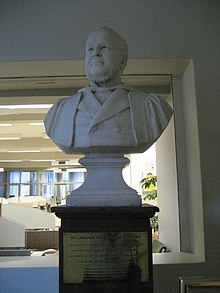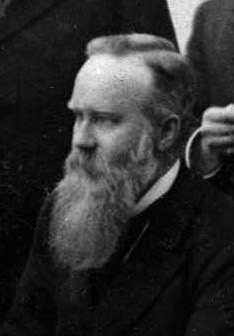
Abraham Fischer was a South African statesman. He was the sole Prime Minister of the Orange River Colony in South Africa, and when that ceased to exist joined the cabinet of the newly formed Union of South Africa.
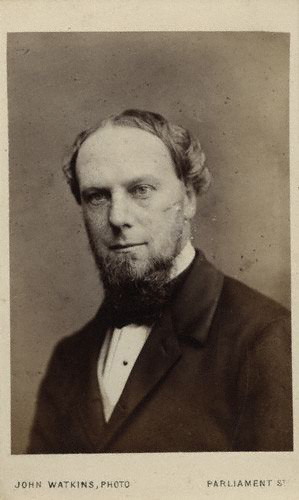
John Wodehouse, 1st Earl of Kimberley, known as the Lord Wodehouse from 1846 to 1866, was a British Liberal politician. He held office in every Liberal administration from 1852 to 1895, notably as Secretary of State for the Colonies and as Foreign Secretary.

Hercules George Robert Robinson, 1st Baron Rosmead,, was a British colonial administrator who became the 5th Governor of Hong Kong, then 13th Governor of Ceylon, and subsequently, the 14th Governor of New South Wales, the first Governor of Fiji, and the 8th Governor of New Zealand. Later in his career he held various positions in Southern Africa, including two terms as Governor of the Cape Colony. From June 1859 until August 1896, he was known as Sir Hercules Robinson.
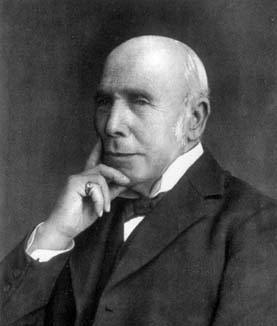
Sir Thomas Muir was a Scottish mathematician, remembered as an authority on determinants.

Francis Guthrie was a Cape Colony mathematician and botanist who first posed the Four Colour Problem in 1852. He studied mathematics under Augustus De Morgan, and botany under John Lindley at University College London. Guthrie obtained his B.A. in 1850, and LL.B. in 1852 with first class honours. While colouring a map of the counties of England, he noticed that at least four colours were required so that no two regions sharing a common border were the same colour. He postulated that four colours would be sufficient to colour any map. This became known as the Four Color Problem, and remained one of the most famous unsolved problems in graph theory for more than a century until it was eventually proven in 1976 using a lengthy computer-aided proof by Appel and Haken.

Sir Herbert Baker was an English architect remembered as the dominant force in South African architecture for two decades, and a major designer of some of New Delhi's most notable government structures. He was born and died at Owletts in Cobham, Kent.

Sir Joseph Benjamin Robinson, 1st Baronet was a South African gold and diamond mining magnate and Randlord.
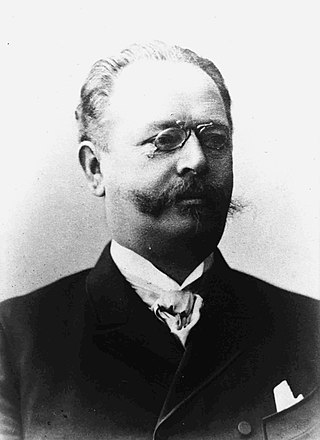
Heinrich Ernst Göring was a German jurist and diplomat who served as colonial governor of German South West Africa. He was the father of five children including Hermann Göring, the Nazi leader and commander of the Luftwaffe.

Selmar Schonland, originally spelt Schönland, the founder of the Department of Botany at Rhodes University, was a German immigrant, who came to the Eastern part of the Cape Colony in 1889 to take up an appointment as curator of the Albany Museum. He came to Grahamstown via a doctorate at the University of Hamburg and a post at Oxford University. Working under Prof. Sir Isaac Bayley Balfour and Prof. Sydney Howard Vines, he developed an interest in the family Crassulaceae and contributed an account of this group to Engler & Prantl's Natürl. Pflanzenfamilien.

Major Sir George Cumine Strahan was a British military officer and colonial administrator, best known as the Governor of Tasmania from 1881 to 1886.

Sir Lionel Phillips, 1st Baronet was a British-born South African financier, mining magnate and politician.
Sir John Wylde was Chief Justice of the Cape Colony, Cape of Good Hope and a judge of the Supreme Court of the colony of New South Wales born at Warwick Square, Newgate Street, London.

John Fairbairn was a newspaper proprietor, educator, financier and politician of the Cape Colony.
Sir Perceval Maitland Laurence was an English classical scholar, judge in South Africa and a benefactor of the University of Cambridge and the University of Cape Town.

William West Jones was the second Bishop and first Archbishop of Cape Town.
Dale College Boys' High School,, is a well-established public English medium high school for boys located in Qonce, a town in the Eastern Cape province of South Africa. With a rich history, it holds the distinction of being one of the oldest schools in the country and is among the few prestigious high schools in the Eastern Cape.

Richmond is a town in the central Karoo region of the Northern Cape Province, South Africa. It is situated on the main N1 route.
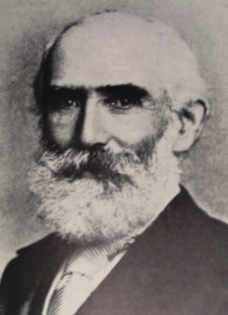
Sir Charles Abercrombie Smith was a Cape Colony scientist, politician and civil servant.

Richard Stuttaford was a South African businessman and parliamentarian.

Fairmont High School is a public English medium co-educational high school situated in the town of Durbanville in the Western Cape province of South Africa.
